Starting a business is exciting, but it comes with its own set of financial challenges. To help you succeed, here are some essential financial tips for entrepreneurs. These tips will guide you in managing your cash flow, budgeting smartly, planning effectively, and optimizing your expenses. By following these strategies, you can set a strong foundation for your business and increase your chances of success.
Key Takeaways
- Always track your cash flow to know where your money is going.
- Create a budget and stick to it to avoid overspending.
- Build an emergency fund to handle unexpected costs.
Mastering Cash Flow Management
Managing your cash flow is like juggling flaming torches—exciting but risky! Here are some essential tips to keep your business afloat:
Track Your Cash Burn Rate
Know how fast your cash is disappearing! This is crucial for survival. Keep an eye on your expenses and adjust your spending to focus on the essentials. Here’s a quick checklist to help you:
- Identify your fixed costs (rent, salaries, etc.)
- Monitor variable costs (supplies, marketing, etc.)
- Set a monthly limit on discretionary spending
Keep An Emergency Fund
Life happens, and so do unexpected expenses. Having a little nest egg can save you from panic mode. Aim to save at least 3-6 months’ worth of expenses. This way, when the unexpected hits, you can handle it without breaking a sweat.
Focus On Minimum Viable Cash Flow
What’s the least amount of cash flow you need to keep your business running? Identify that number and stick to it! This means:
- Knowing when you can collect payments early
- Delaying expenses until cash comes in
- Setting realistic sales goals
Build A Cash Reserve
Having a cash reserve is like having a superhero cape—ready to swoop in when things get tough! Aim to save at least 10% of your profits. This reserve can help you tackle emergencies or seize new opportunities without stress.
Remember, mastering cash flow management is not just about keeping the lights on; it’s about thriving in your entrepreneurial journey!
Smart Budgeting Strategies

Create A Realistic Budget
Creating a budget is like drawing a treasure map for your finances. Start by listing all your income sources and fixed expenses. Then, allocate funds for variable costs and set aside some for savings. A well-planned budget helps you avoid overspending and keeps your business afloat!
Stick To Your Budget
Once you’ve crafted your budget, it’s time to stick to it like glue! Regularly check your spending against your budget to ensure you’re on track. If you find yourself straying, don’t panic—just adjust your spending habits. Remember, it’s all about keeping your financial ship steady.
Monitor Budget vs. Actuals
Keep an eye on how your actual spending compares to your budget. This is where the magic happens! By tracking these numbers, you can spot trends and make informed decisions. Here’s a simple table to help you visualize:
| Category | Budgeted Amount | Actual Amount | Difference |
|---|---|---|---|
| Marketing | $500 | $600 | -$100 |
| Office Supplies | $200 | $150 | +$50 |
| Utilities | $300 | $350 | -$50 |
Adjust Your Budget As Needed
Life happens, and so do unexpected expenses. If you find that your budget isn’t working, don’t be afraid to tweak it. Adjusting your budget is not a sign of failure; it’s a sign of being proactive! Keep your goals in mind and make changes that align with your business needs.
Remember, budgeting is not just about restricting yourself; it’s about empowering your business to thrive!
By following these smart budgeting strategies, you’ll be well on your way to financial success. And don’t forget, tax strategies can also play a crucial role in maximizing your profits and minimizing liabilities!
Effective Financial Planning
Know Your Financial Numbers
You can’t hit a target you can’t see, right? Knowing your financial numbers is like having a map for your business journey. You need to keep tabs on:
- Income: How much cash is flowing in?
- Expenses: Where’s that cash going?
- Debt: What do you owe?
- Net Worth: What’s your overall financial health?
Understanding these numbers helps you make smart decisions and avoid unnecessary spending. Plus, it prepares you for when you need to impress potential investors or lenders.
Set Clear Financial Goals
Setting financial goals is like setting a destination for your road trip. You wouldn’t just drive around aimlessly, would you? Here’s how to set those goals:
- Be Specific: Instead of saying, "I want to make more money," say, "I want to increase my revenue by 20% this year."
- Make Them Measurable: Use numbers to track your progress.
- Set a Timeline: Give yourself a deadline to keep you motivated.
Plan For Taxes
Ah, taxes—the necessary evil! Planning for taxes is crucial. Here’s a quick checklist:
- Know your tax obligations: Understand what you owe and when.
- Keep good records: This will save you headaches later.
- Consider hiring a tax professional: They can help you find deductions you might miss.
Work With Financial Advisors
Sometimes, you need a little help from the pros. Working with financial advisors can provide you with insights that you might not have considered. They can help you:
- Create a solid financial plan.
- Navigate complex financial decisions.
- Stay accountable to your financial goals.
Remember, your financial health is just as important as your business health. If you’re not keeping an eye on your finances, you might find yourself in a tight spot. So, take charge and make your financial planning a priority!
Optimizing Business Expenses

Minimize Customer Acquisition Cost
When you’re just starting out, keeping your customer acquisition costs low is key. Think of it this way: if you can get customers without spending a dime, you’re winning! Focus on organic growth strategies like word-of-mouth and social media. Every dollar saved is a dollar earned!
Invest In Essential Tools
Investing in the right tools can save you money in the long run. Whether it’s accounting software or project management tools, make sure they align with your business needs. Here’s a quick list of essentials:
- Accounting software (like QuickBooks)
- Project management tools (like Trello or Asana)
- Communication platforms (like Slack)
Avoid Unnecessary Expenses
It’s easy to get caught up in the excitement of running a business and overspend. Keep an eye on your expenses and cut out anything that doesn’t add value. Here’s how:
- Review your monthly subscriptions and cancel what you don’t use.
- Negotiate with suppliers for better rates.
- Always ask yourself: "Do I really need this?"
Reinvest Profits Wisely
Instead of splurging on flashy new gadgets, think about how you can reinvest your profits back into the business. This could mean upgrading your equipment or expanding your marketing efforts. Remember, the best investment is in your own growth!
Keeping your expenses in check is like keeping your diet in check; a little discipline goes a long way!
Wrapping It Up: Your Financial Playbook
So there you have it, folks! If you want to be the next big success story, remember these financial tips like they’re your favorite song lyrics. Keep it real with your numbers, don’t be afraid to stand out, and always have a backup plan for those rainy days. It’s all about being smart with your cash and knowing when to pivot. And hey, if you ever feel overwhelmed, just remember that even the best entrepreneurs started somewhere. So grab your calculator, put on your thinking cap, and get ready to take your business to the next level. You’ve got this!
Frequently Asked Questions
What is cash flow management and why is it important for my business?
Cash flow management is tracking how money flows in and out of your business. It’s important because it helps you ensure you have enough money to pay bills and invest in growth.
How can I create a budget that works for my business?
To create a budget, start by listing all your expected income and expenses. Make sure to review and adjust it regularly to keep it accurate.
What should I do if my business is running low on cash?
If you’re low on cash, consider cutting unnecessary expenses, seeking additional funding, or increasing sales through promotions or discounts.







